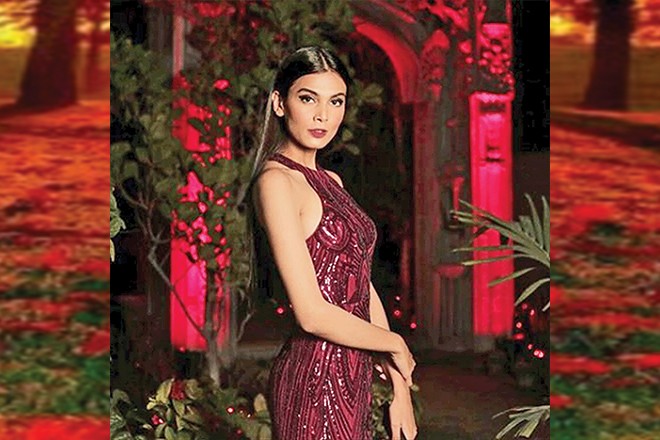

INSTEP ANALYSIS
This past week a successful model in Pakistan came out with a story that shocked not because it is the first time we’ve heard this but because the last time should’ve been years ago. Mushk Kaleem has worked with almost all leading brands but her Instagram post made some realize just how unpleasant her experiences have been whilst at work. She wrote that she was done with brands wanting to white wash her and change her skin colour because she didn’t fit into their pretty, commercial mould for lawn. She doesn’t want to be made "appropriate" anymore.
And why should she? Not only does this make her a victim of colourism but it is also highly demeaning and ethically wrong to do this to the talent that works at a shoot.
Colourism, for the uninitiated, is discrimination against individuals with a dark skin tone, typically among people of the same ethnic or racial group. It is demeaning because as a brand it is your duty to hire a model knowing what their skin colour is and proceeding to change it seems like what they were born with isn’t good enough. It is ethically wrong because photo shopping or changing crucial parts of someone’s identity is immoral.
It’s no secret that we still have lingering effects of colonialism in the way we view the world but to hear that colourism is as blatant in the fashion industry as models being told "Lahoris have issues with dark models for summer lawn" or "the brand can’t afford to get hate comments on luxury collections" or because "we need a pretty feel for the shoot" as Mushk wrote.
The issue is much more deep rooted and widespread than we realize. Instep spoke to makeup artist Fatima Nasir who reiterated that brands requiring the makeup artist to lighten a model’s colour are rampant. "It happens very frequently in Lahore but luckily I don’t come across such clients too often. There are brands like Generation, Elan, Khaadi, Zara Shahjahan, BeechTree, Sana Safinaz and Al-Karam who love using dark models and are pretty comfortable with them being the face of their brand. Every now and then, I do have to work with brands who hire tan models and request me to make the model as white as possible. I try explaining that one can’t possibly change someone’s complexion with makeup, they end up looking ashy and their body would still be a different colour. Then they ask me to put foundation on their hands and feet as well. It’s really embarrassing for us and humiliating for the model."
Hussain Rehar, a rather new designer from Lahore, is pretty clear on where he stands with casting models. "I appreciate our skin colour and will never change the skin tone of a model even if it’s for the sake of a really experimental shoot."
It’s good to see models, makeup artists and designers take a stand against this issue. It is such action from within the industry that might help to push it in the right direction, however long that might take. The responsibility lies with the people greatly because they are the ones who continue letting these thoughts dictate their buying patterns and everyday actions.
From writing bitter comments about tanner models, ‘consuming Fair and Lovely’ to ‘not wearing orange because it makes you look dark’ this obsession with fair skin is unhealthy and toxic. Brands and companies respond to customer demand which is why they’re so bold in their bias towards ‘lighter models’. It’s high time that we as customers become more aware of the things happening around us as well as the messaging brands are sending out to us.
We also need to hold our celebrities and influencers to the same standards with their endorsements. When beauty stereotypes are reinforced by our stars, it adds to the problem instead of solving it. Not looking too far, our neighbours in India have had a long standing history with similar colourism where a number of their actors including Shah Rukh Khan and Sonam Kapoor have endorsed fairness creams. However, some are more responsible about their influence and are promoting the ‘dark is beautiful’ campaign.
From Nandita Das to Nawazuddin Siddiqui and even Kangana Ranaut, all have spoken out against the dark skin bias. While Kangana has refused to endorse a fairness cream brand, Abhay Deol went as far as to name and shame renowned Bollywood personalities for endorsing fairness products.
Locally, we’ve had Fawad Khan and Sajal Aly endorse Fair and Lovely, both of whom have received plenty of flak for it. Most recently, Mawra Hocane has been endorsing the brand and her following is visibly and correctly quite disappointed. While she defends herself by saying the primary aim of the cream is not fairness and that it’s a BB cream… therefore a makeup product, the packaging of the product itself says that the cream is for an ‘instant fair look’. The problem in our society of endorsing a product like this is grave and can impact younger girls very negatively because like models on sets, they hear the same things growing up - that being dark is problematic. When a celebrity they look up to, attaches themselves to the same idea, it makes them even more insecure about themselves. Stars should be more particular about what they give their name to and as bystanders, consumers or even fans, we shouldn’t let it slide.
Overall, there are glimmers of hope and a slow march forward but for the attitude to true change, more women (and men) need to take charge of the fashion industry and how it’s advertised and collectively say - dark is beautiful.